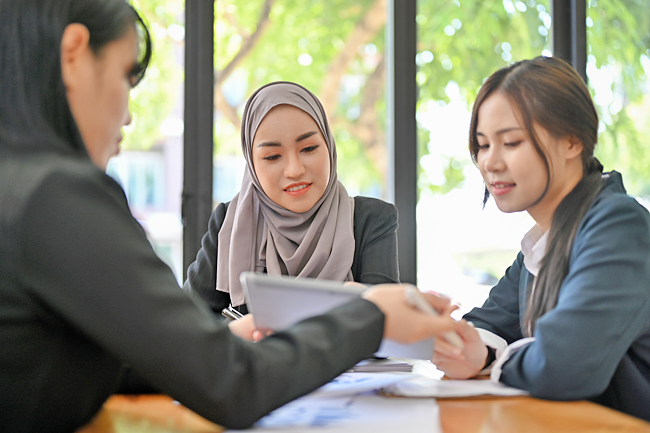Azlan Othman
Women in the Sultanate have significant freedom to start and run businesses, according to a World Bank report, with Brunei Darussalam receiving the second highest score in ASEAN (75) along with other nations including Indonesia, Malaysia, Myanmar, Singapore and Thailand.
Such freedom was highest in Cambodia, Laos, the Philippines and Vietnam with the score of 100.
This was highlighted in the bank’s Women, Business and the Law report released in Washington last week.
The rankings as of October last year are based on eight indicators for mobility, the workplace, pay, marriage, parenthood, entrepreneurship, assets and pensions. The report also found wide differences among ASEAN laws affecting the size of a woman’s pension.
Brunei alone had the best score (100). Cambodia, Indonesia, Malaysia, the Philippines, Singapore and Thailand came next (75) followed by Laos (50), Myanmar (25) and Vietnam (zero).
However, the report revealed that more needs to be done in terms of property and inheritance, women’s freedom of movement, and women’s decision to work.
The global pace of reforms toward equal treatment of women under the law has slumped to a 20-year low, constituting a potential impediment to economic growth at a critical time for the global economy, the World Bank report showed.

In 2022, the global average score on the World Bank’s Women, Business and the Law index rose just half a point to 77.1 – indicating that women, on average, enjoy 77 per cent of the legal rights that men do.
At the current pace of reform, in many countries a woman entering the workforce today will retire before she will be able to gain the same rights as men, the report noted.
“At a time when global economic growth is slowing, all countries need to mobilise their full productive capacity to confront the confluence of crises besetting them,” said Chief Economist of the World Bank Group and Senior Vice President for Development Economics Indermit Gill.
“Governments can’t afford to sideline as much as half of their population. Denying equal rights to women across much of the world is not just unfair to women; it is a barrier to countries’ ability to promote green, resilient, and inclusive development.”
The report assessed 190 countries’ laws and regulations in eight areas related to women’s economic participation – mobility, workplace, pay, marriage, parenthood, entrepreneurship, assets, and pensions. The data – which are current through October 1, 2022 – offer objective and measurable benchmarks for global progress toward legal gender equality.
Today, just 14 countries – all high-income economies – have laws that give women the same rights as men.
Worldwide, nearly 2.4 billion women of working age still do not have the same rights as men.
Closing the gender employment gap could raise long-term gross domestic product (GDP) per capita by nearly 20 billion on average across countries.
Studies estimate global economic gains of USD5-6 trillion if women started and scaled new businesses at the same rate as men do.
In 2022, only 34 gender-related legal reforms were recorded across 18 countries – the lowest number since 2001.
Most reforms focussed on increasing paid leave for parents and fathers, removing restrictions to women’s work, and mandating equal pay. It will take another 1,549 reforms to reach substantial legal gender equality everywhere in the areas measured by the report. At the current pace, the report notes, it would take at least 50 years on average to reach that target.
The latest Women, Business and the Law report provides a comprehensive assessment of global progress toward gender equality in the law over the past 50 years.
Since 1970, the global average score has improved by about two-thirds, rising from 45.8 to 77.1 points.
Although great achievements have been made over the last five decades, more needs to be done worldwide to ensure that good intentions are accompanied by tangible results – that is, equal opportunity under the law for women.







